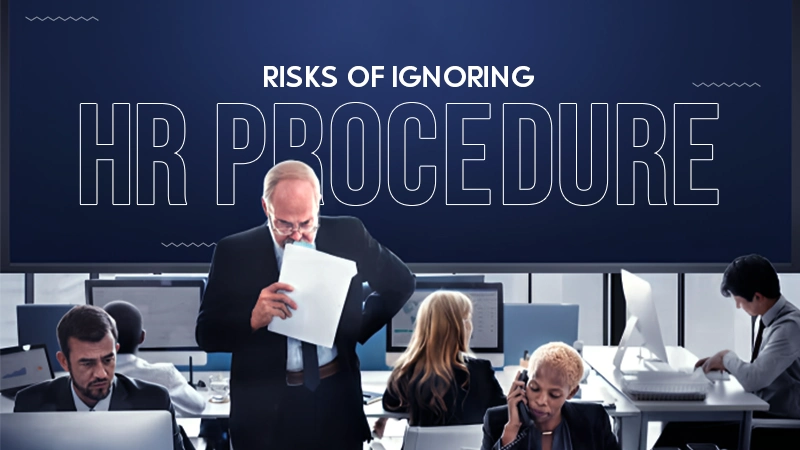
Human resources compliance is not just a concern for large corporations—small businesses face substantial risks when HR procedures are ignored, mishandled, or left to chance. Employment laws now touch every aspect of the workplace, from hiring and onboarding to wage calculations, harassment prevention, leave policies, and termination. The reality is that even one overlooked regulation, missing document, or unfair employment practice can expose a company to government audits, lawsuits, or regulatory penalties that threaten its very survival. Many business owners underestimate the cumulative effect of small errors, only to discover that a single HR oversight can spiral into a crisis with lasting financial and reputational harm.
How Do Routine HR Mistakes Threaten Business Stability?
Routine HR mistakes threaten business stability when gaps in compliance lead to employee complaints, agency investigations, or class-action lawsuits. Many owners assume that HR is simply a matter of common sense or generic policies, but modern regulations are complex and frequently updated. For example, misclassifying employees, mishandling payroll, or failing to maintain required documentation can all result in fines or legal claims. Businesses that skip background checks or neglect anti-harassment training expose themselves to liability for workplace misconduct. When these mistakes are repeated or left uncorrected, they can damage morale, invite negative publicity, and drain resources needed for growth. Seeking the guidance of Attorneys can help uncover hidden risks and provide clarity in an increasingly regulated environment.
What Common Oversights Trigger Regulatory Investigations?
Common HR oversights that trigger regulatory investigations include improper wage calculations, missing employee records, ignoring accommodation requests, and failure to display mandatory workplace notices. Agencies respond aggressively to patterns of noncompliance, especially if they receive complaints from current or former employees. Small businesses are sometimes targeted because they lack a dedicated HR department and rely on outdated templates or verbal agreements. For instance, overlooking the proper way to calculate overtime or classifying staff as exempt from wage laws without sufficient documentation often invites scrutiny. Cases featured in Legal news repeatedly highlight businesses that underestimated the importance of regular compliance reviews and paid the price through costly enforcement actions.
Which Employment Practices Carry the Greatest Risk?
Some employment practices carry disproportionate risk, either because they are commonly misunderstood or because violations tend to escalate rapidly. Inadequate onboarding procedures, poor documentation of disciplinary actions, or inconsistent application of workplace policies are frequent culprits. Businesses that fail to document performance issues or terminations often lose credibility in legal proceedings. Problems also arise when managers retaliate against employees for raising workplace concerns, or when anti-discrimination laws are ignored in hiring, promotion, or dismissal decisions. These gaps, even when unintentional, can lead to both private lawsuits and government-imposed penalties.
Explore key HR oversights that threaten business continuity below.
- Misclassifying Employees: Treating workers as independent contractors or exempt employees to save on payroll taxes or overtime costs frequently leads to audits and lawsuits.
- Missing Required Training: Skipping state-mandated harassment prevention or safety training programs can result in fines and liability for workplace incidents.
- Improper Leave Administration: Failing to provide or track leave under laws such as the Family and Medical Leave Act (FMLA) exposes businesses to penalties and wrongful termination claims.
- Inconsistent Disciplinary Actions: Documenting some infractions but ignoring others creates the appearance of favoritism or discrimination, increasing legal risk.
- Neglecting Records Retention: Discarding payroll, tax, or personnel files too early undermines the company’s defense in disputes and investigations.
How Can Legal Professionals Prevent Costly HR Errors?
Legal professionals help prevent costly HR errors by conducting compliance audits, drafting customized handbooks, and providing practical training to managers and HR personnel. Attorneys review employment policies to ensure they meet the requirements of current law, clarify gray areas, and prepare businesses for new legislative developments. In addition, legal counsel can provide strategies for handling sensitive matters such as workplace complaints, investigations, and terminations, reducing the likelihood of escalation into legal claims. With experienced legal support, business owners gain the confidence that their HR practices are robust, up-to-date, and defensible in court or before regulators.
What Steps Minimize the Risk of Business-Ending HR Mistakes?
Minimizing the risk of HR mistakes that could jeopardize a business starts with proactive planning and continuous education. Owners should establish thorough onboarding procedures, maintain detailed records for every employee, and schedule periodic compliance reviews. Training for supervisors on workplace rights, anti-discrimination policies, and proper documentation procedures is critical to maintaining a fair and lawful environment. Transparent communication channels, prompt attention to complaints, and a culture of respect help identify and correct issues before they spiral. By working with trusted legal professionals and staying informed through ongoing training, businesses can protect themselves against HR oversights that threaten not just reputation but the entire enterprise.
